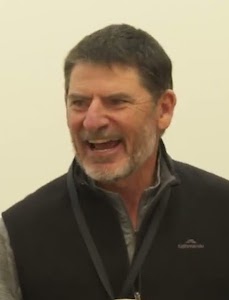JOEE 25 (3)
JOEE December 2023 Issue
The December 2022 issue of JOEE has six papers from international academics and researchers from Spain, Canada, Scotland and Australia. Topics explored include: helping kindergarten children to identify more with their local environments and also how nature experiences foster a scientific mindset; a Canadian take on the value of post secondary outdoor education; the importance of challenging, singular outdoor activities in providing nuanced learning opportunities; and how best to prepare for another major disruption like Covid-19 from lessons learnt. There’s an additional research paper on research and a book review of an awarding winning US book — something of interest for everyone.
Reminder: To read these full articles you need to log-in to the OEA Digital Library
LOG-IN LINK in the menu on the right (at the top) or near bottom if viewing on mobile device.
The perception of the environment through drawing in early childhood education. The case of the wetland of the Albufera in Valencia (Spain)
Amparo Carretón Sanchis, Ignacio García Ferrandis (pic), Javier García Gómez
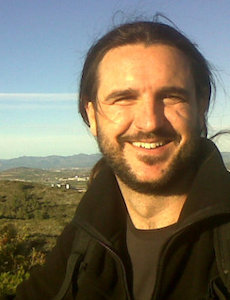
This research sought to find out whether kindergarten aged children who live in the Natural Park of the Albufera in Valencia (Spain), have a feeling of belonging and perceive this characteristic natural space as part of their environment. An activity was proposed to the students in which they had to draw nearby places of their liking.
From the analysis of these artworks, six thematic categories were established, two of them corresponding to a perception of the natural environment. The results seem to indicate that children from the area concerned have difficulties in perceiving this natural space as an important part of their environment, despite it being so closely linked to their lives. The paper suggests the appropriate changes with respect to learning about the natural environment in ECE.
Outdoor education in Canadian post-secondary education: common philosophies, goals, and activities
Morten Asfeldt, Rebecca Purc-Stephenson (pic), Thomas Zimmerman
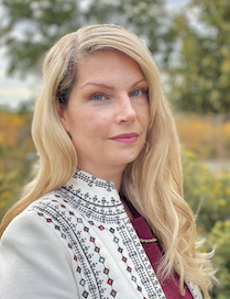
This study sought to identify common philosophies, learning goals, and characteristics of PSE OE in Canada. Findings indicate that PSE OE in Canada is influenced by six common philosophies and includes five common learning goals. Overall, this study demonstrates that OE is well aligned with the common goals and missions of PSE in Canada.
The methodology wars and outdoor and environmental education: Feminism, positivism, and causation
Jack Reed
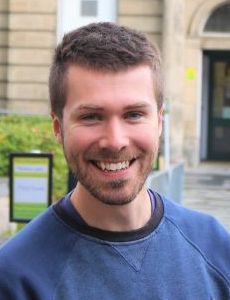
Drawing on a conceptual causal pluralist^ approach to causation within the feminist paradigm, four key touchstones are presented to facilitate inclusive, equitable, and reflexive research for OEE post-pandemic. The paper responds to increasing sociocultural complexity as it is lived and felt within the profession and beyond.
* Belief in or advocacy of women’s social, political, and economic rights, especially with regard to equality of the sexes
# Positivist methodology emphasizes engaging in research in settings where variables can be controlled and manipulated.
^ Causal pluralism acknowledges underlying diversity.
Preparing for the next pandemic: adopt, adapt or improve?
Simon Priest
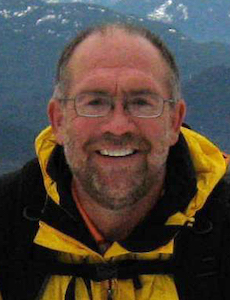
This article considers the approach for future risks around Covid or other such disruptions and suggest it is wise to invent the future we want by starting now. Despite COVID-19 persisting in many countries, this article shares tactics from several strategic approaches to preparing for the next pandemic: accept the current practices (adopt), modify to suit new conditions (adapt), or find a different and better way (improve). The author favours “IMPROVE” and discusses it and the shortfalls of the other two approaches.
“Immersed within the rock itself”: Student experiences rock climbing in outdoor education
Jack Jane, Brian Wattchow (pic), Glyn Thomas
Outdoor education has a long tradition of using adventurous activities like rock climbing to achieve learning outcomes. However, the arguments for their inclusion have been eroded in recent decades with less emphasis on individual activities and less focus on unique learning potential.
This paper presents the findings of research into one group of secondary school students and their experiences rock climbing while on an OE camp at Mt Arapiles/ Dyurrite in Victoria, Australia. It re-tells their stories about two climbing contexts – top rope and multi pitch climbing. Data collected through interviews were used to retell the student’s stories about their climbing experiences and inform our analysis of how rockclimbing practices may be modified to better suit evolving ideas within outdoor education.
The study highlights the impact that guides have on student’s experiences and the need for program design to be guided by intended learning outcomes. Finally, we recommend more research into students’ lived experiences across the OE curriculum to develop more nuanced outdoor education programs.
Education in nature and learning science in early childhood: a fertile and sustainable symbiosis
Esther García-González (pic< Michela Schenetti
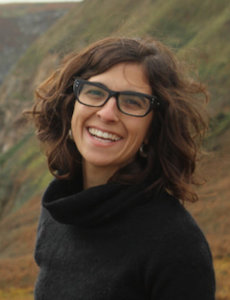
Nature generates questions such as “Why do trees drop their leaves?”, “How does a beetle breathe?” or “What is the name of this flower?”.
To answer these questions, children instinctively investigate. They form hypotheses, make choices and propose solutions. It is their way of training to learn science in the future. Likewise, constant contact with nature encourages ecological awareness, as well sustainable behaviour in harmony with the environment. All of that requires the involvement of the educational community, as well as a paradigm change towards a more complex view of education, issues this paper will focus on.
Undrowned: Black feminist lessons from marine mammals by Alexis Pauline Gumbs – BOOK REVIEW
Melvin Chin-Hao Chan
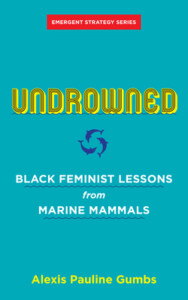
Published in 2020, it’s a Whiting Award winner — an American award presented annually to ten emerging writers in fiction, nonfiction, poetry and drama.
It’s highly original and highly praised with one review saying: ‘Gumbs pushes us out of our comfort zone and into the sea where other species are moving and mothering in what that can teach us how to survive.’
Reviewing for JOEE is Melvin Chin-Hao Chan, who is with the Department of Educational and Counselling Psychology and Special Education, Faculty of Education,, The University of British Columbia,


